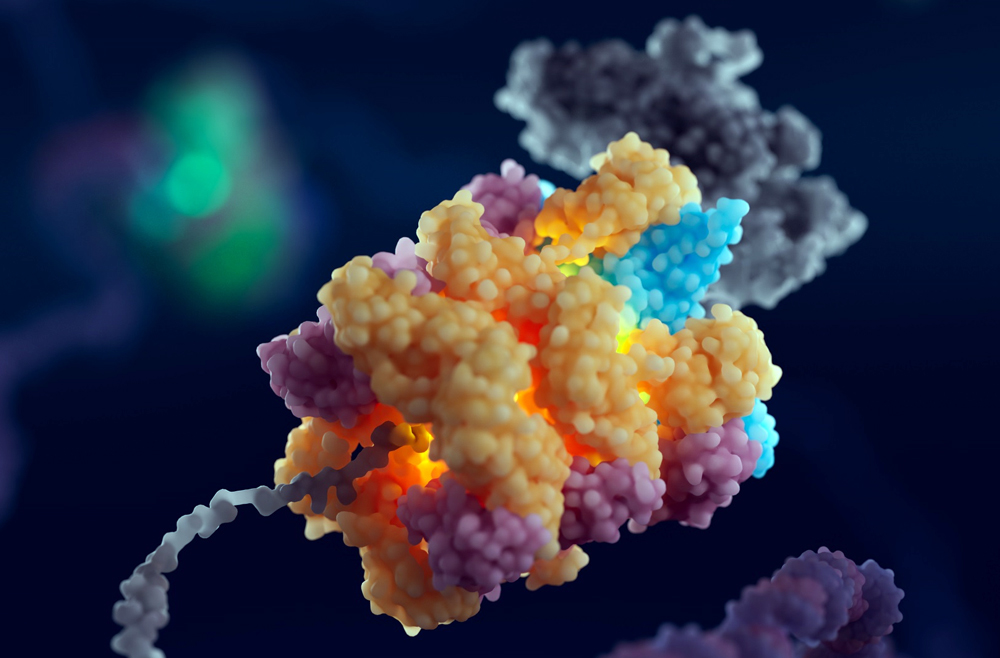by Meagan Raeke

When cells in the human body divide, they must first make accurate copies of their DNA. The DNA replication exercise is one of the most important processes in all living organisms and is fraught with risks of mutation, which can lead to cell death or cancer. Now, findings from biologists from the Perelman School of Medicine and from the University of Leeds have identified a multiprotein “machine” in cells that helps govern the pausing or stopping of DNA replication to ensure its smooth progress. Illustration of the 55LCC complex. (Image: Courtesy of Cameron Baines/Phospho Biomedical Animation)
The discovery, published in Cell, advances the understanding of DNA replication, helps explain a puzzling set of genetic diseases, and could inform the development of future treatments for neurologic and developmental disorders.
“We’ve found what appears to be a critical quality-control mechanism in cells,” says senior co-corresponding author Roger Greenberg, the J. Samuel Staub, M.D. Professor in the department of Cancer Biology, director of the Penn Center for Genome Integrity, and director of basic science at the Basser Center for BRCA at Penn Medicine. “Trillions of cells in our body divide every single day, and this requires accurate replication of our genomes. Our work describes a new mechanism that regulates protein stability in replicating DNA. We now know a bit more about an important step in this complex biological process.”
Read the full story at Penn Medicine News.
Greenberg is a member of the Penn Bioengineering Graduate Group.
